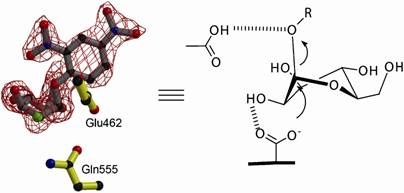€1m to study the molecular chemistry of depleted uranium
Advertisement
A scientist at The University of Nottingham has been recognised for his outstanding and creative early career research with a prestigious €1m (£893,775) grant to study speculative and ground-breaking research into molecular depleted uranium chemistry.
Dr Steve Liddle, a Royal Society University Research Fellow and lecturer in the School of Chemistry, has been awarded a Starting Independent Research Grant (StG) by the newly established European Research Council (ERC). The award is the first of its kind for The University of Nottingham.
Depleted uranium is a byproduct from uranium enrichment and of no use in nuclear applications because the radioactive component has been removed. It has varied applications ranging from counterweight balances in airplanes to radiation shielding in medical radiation therapy. However, the molecular chemistry of uranium is poorly understood and developing it could enable a readily available, but thus far ignored resource, to be used for new and safe applications in the future.
Dr Liddle said: "Uranium suffers somewhat from negative PR. However, there is great potential for complexes of Uranium-238 (depleted uranium) to provide new catalysts, insight into nuclear waste separation technologies and provide useful applications for the stocks of waste depleted uranium around the world. The project will also provide valuable knowledge about Actinide chemistry, one of the least understood sections of the periodic table."
The award will support new projects and ideas for fundamental molecular uranium chemistry by developing new compounds containing uranium-metal bonds, assessing their intrinsic reactivity patterns, defining structure-bonding-reactivity relationships, and developing a better understanding of actinide chemical bonding from an integrated experimental and theoretical approach.
The ERC StG scheme aims to identify and support the very best and creative early career independent researchers in Europe via five-year consolidated funding to pursue speculative and ground-breaking frontier research.
Most read news
Other news from the department science

Get the chemical industry in your inbox
By submitting this form you agree that LUMITOS AG will send you the newsletter(s) selected above by email. Your data will not be passed on to third parties. Your data will be stored and processed in accordance with our data protection regulations. LUMITOS may contact you by email for the purpose of advertising or market and opinion surveys. You can revoke your consent at any time without giving reasons to LUMITOS AG, Ernst-Augustin-Str. 2, 12489 Berlin, Germany or by e-mail at revoke@lumitos.com with effect for the future. In addition, each email contains a link to unsubscribe from the corresponding newsletter.



























































